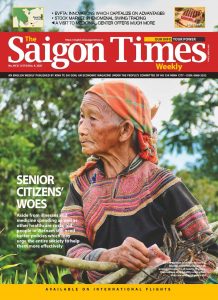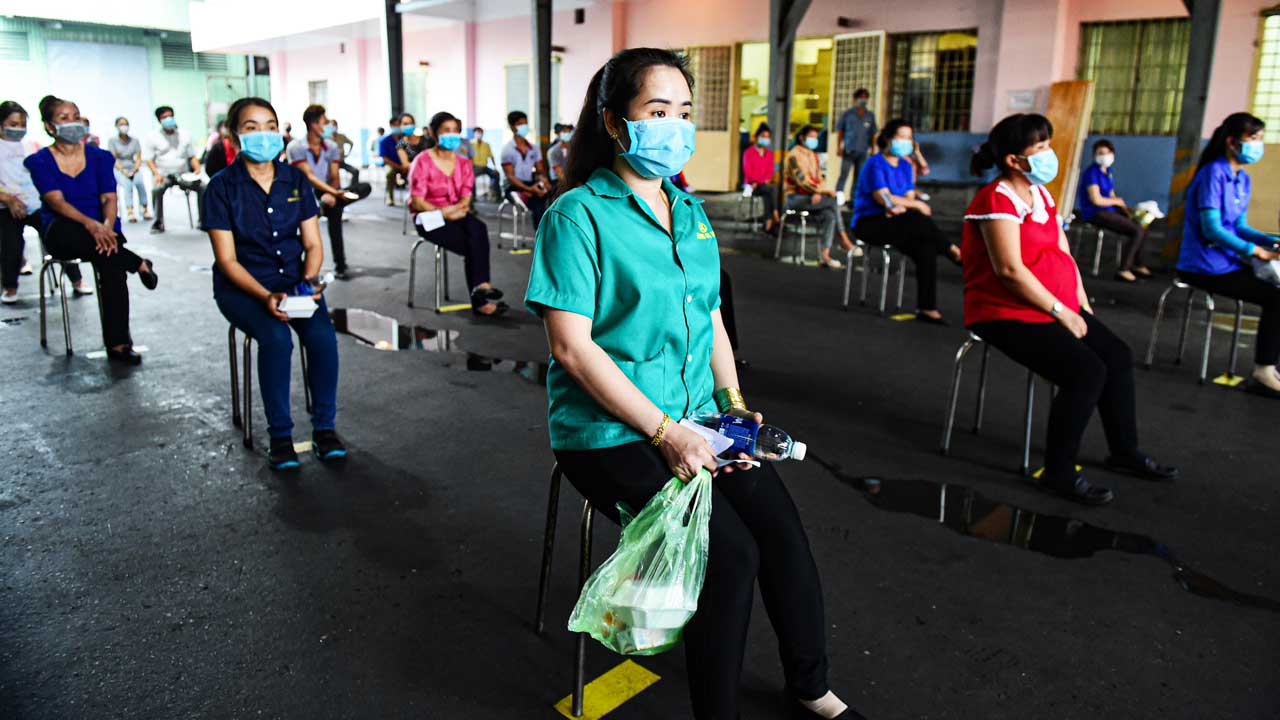The mindset that the economy may be closed down or reopened at any time is still embedded in such statements as “production must be safe,” as well as in thoughts about new green zones in the initial phase of reopening. Currently, even in localities where the rate of people receiving two doses of vaccines is high, economic activities have yet to be normal, albeit new normal.
During an interview in September, a reporter asked me what should be done to rescue domestic companies and business households while retaining foreign investors. My answer was simple. “Let them start their production again,” I said. “But don’t reopen something only to close it again after two or three days later.”
Why such an answer? Because I already have experienced exactly the same problem in Britain during the initial reopening phase following the nationwide lockdown in April. My university at the time would not be able to plan any teaching programs until concrete guidelines had been made on when we could conduct in-person learning (in fact, it is “face mask-to-face mask”).
Only when Easter was in the air—two weeks from it, exactly—did basic instructions be available. Then came a sprint taken part in by tens of thousands of our people to adjust our schedules (although some of them were predictable). Luckily, the process went rather smoothly. However, incurred costs were inevitable because of the spending on new equipment needed for online classes following Easter, cancellations of orders for supporting services in events, and cancellations of flight bookings for students, and the like. In the meantime, we had to step up online learning and testing (and of course, we had to pay for these online service providers).
Indefiniteness and unpredictability of polices are what all organizations, in particular business entities, are most fearful of. It is because a revision or an adjustment may incur a huge sum spent to afford the change. If polices change the way a light switch is turned on or turned off, no company could tolerate it.
This is told to see how great losses the affected would have to suffer in unexpected situations. For instance, the Hanoi government intended to quarantine people from HCMC and then repealed it; or the HCMC authorities allowed bars, health spa and karaoke parlors to reopen only to shut them down again two days later.
Companies’ operations, their mobility schemes and business plans aren’t a light switch which can be turned on or off at ease because each time doing so may cost hugely. This was told by one of my friends who is the owner of a spa facility in HCMC. His company had just spent some money on advertisements for the reopening. And then, all of a sudden, he and his partners did not know what to do next with the reintroduction of the ban. Some of his employees had just returned to HCMC to resume their work at the spa. He didn’t know what to say to them.
Nightlife is an important part of HCMC’s economy. So are the informal sector which plays a crucial role in the city’s economic dynamism. Because it has suffered enormously during the long, strict lockdown, now in the “new normal,” what business people and entrepreneurs in town would react if they had to face the mindset that considers closure and reopening a simple issue.
The mentality that the economy may be closed down or reopened at any time is still embedded in such statements as “production must be safe,” as well as in thoughts about new green zones in the initial phase of reopening. Currently, even in localities where the rate of people receiving two doses of vaccines is high, economic activities have yet to be normal, albeit new normal.
The lack of Covid-19 vaccines, the fear of rising infection cases as well as the determination to be safe at any costs, all may lead to a closure again as soon as the number of Covid-19 patients rises. Please bear in mind that a green zone may turn into a red one in no time. Localities which are safe now and fearful of people from Saigon may face the same situation [becoming a red zone]. Then, what they would think if they were treated the same way as somebody in Dalat did when he hung up a sign in front of his store which said it didn’t accept visitors from Saigon!

Vaccines are by no means elixirs. In nations where the rate of people given two jabs is higher than 70%, such as some European countries, infection counts are continuing to rise at the moment. Some have had to introduce nationwide lockdown again. Austria is just an example. However, their lockdown is not the same as ours. They don’t isolate infected people who remain healthy.
These experiences have been learned not only in the world but also in Vietnam. As long as the thought that rising infected cases must be avoided instead of severe or hospitalized cases or deaths, the risks posing to closure of the economy after a short time it has been reopened will remain high.
To avert this situation, it requires an appropriate approach hinging on scientific data and helping overcome the invisible fear of Covid-19. Infected people should remain at home and all who don’t test positive must be considered healthy person and allowed to work normally.
The fourth wave of Covid-19 has shown us how concentrated isolation of F0s and F1s in HCMC exhausted the city’s healthcare network. When resources have been used up, concentrated isolation won’t be effective while it withdraws a remarkable resource with which severe Covid-19 cases as well as other grave patients can be treated. Appendicitis may be lethal if it is not treated in time while a young non-symptom Covid-19 patient has a very low possibility of death.
Vice chairman of the National Assembly’s Legal Committee Nguyen Manh Cuong recently said quarantine is necessary when there is no alternative, and it must not be abused. This mindset is in line with the spirit of Resolution 128 by the Government. However, many local authorities seem to be going against this rightful spirit maybe because of an invisible fear. Nobody can tell whether the fear is from the virus or the responsibility. However, it seems that many leaders do not fear an economic catastrophe.
Fighting the pandemic should not be at the expense of the entire economy because we need money to combat the virus. Aside from suppressing Covid-19, we also need to run the economy to have resources for other demands, such as healthcare and education. Life has other worries to tackle beside the pandemic. Depression, suicides and social unrests due to prolonged and draconian lockdowns are new problems many nations have to face. That’s why reintroduction of lockdowns should only be the last resort.
In many countries, production resumption is first started with the reinstatement of low contact services using online technology and the system of shippers. Next come other activities with more close contacts, such as dine-in services, entertainment and recreation. Each step has a schedule. Yet the common norm is “no U-turn” after a few days of reopening because that would cause businesses to suffer enormously. These governments choose to delay high contact activities, such as sports/music events, cinemas and night clubs. However, they don’t opt for a “hard brake” or a “U-turn.” Once something is reopened, it should not be closed after a few days later.
More importantly, in these countries, such as Britain where I’m living, governments have spent big supporting businesses in difficulty due to pandemic prevention regulations via preferential loans or financial aid. These amounts are from the State budget pooled into banks, and the conditions for access to these loans are not complicated. Due to this support, many companies can sustain operations despite several social distancing measures taken during a course of 18 months.
That may be difficult given the context of Vietnam.
In Vietnam, considering the mindset of closing the economy when infections rise and the fear of responsibility which forces enterprises to be liable for infections, the economic reopening is a hard and slow process. On this path, the fear of abrupt closure is the first to contend with as it will not only waste resources but also sap confidence of businesses and workers.
Nationwide, statistics show that nearly 90% of firms are facing difficulties due to the pandemic and 1.8 million workers are underemployed.
Many firms are not in need of a “rescue.” What they need is the green light for sustainable business and production so that they are not “ambushed” by unpredictable policies on closure or reopening.
(*)Lecturer, University of Bristol, the United Kingdom









